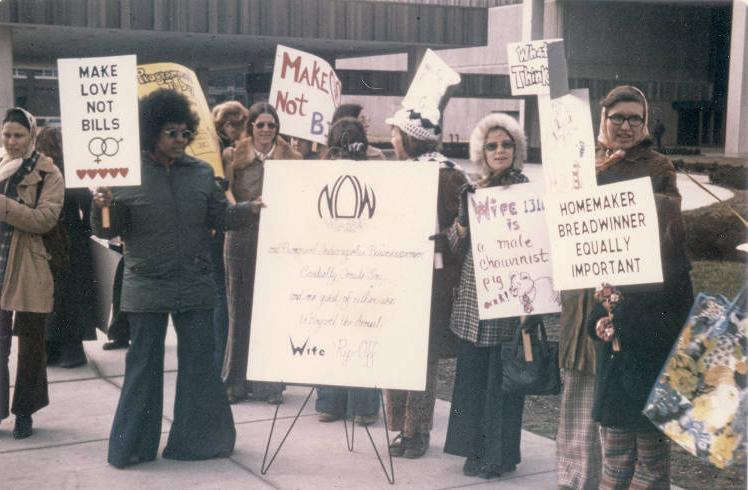The National Organization for Women (NOW) was founded in 1966 in Washington D.C., to combat discrimination against and to promote equality for women in all aspects of American society. Composed of both men and women, NOW took active stands on legislation prohibiting gender-based discrimination in politics and the workplace, promoting child-care centers and reproductive freedom.

Muncie-Delaware County formed the first NOW chapter in Indiana. In 1972, law student Norma Bradway Card convened the Indianapolis chapter. NOW unsuccessfully fought for the ratification of the equal rights amendment and supported the 1973 Supreme Court decision on Roe v. Wade, legalizing abortion. The Indianapolis NOW chapter, in conjunction with the national organization, lobbied for these issues at the state level. The proposed federal (ERA) was NOW’s primary focus until 1982. President Marion Wagner led Indianapolis NOW in organizing to elect pro-ERA legislators in 1975-1976. This strategy resulted in Indiana’s ratification of the ERA on January 18, 1977.
From 1972 to 1975, Indianapolis NOW examined local radio and television stations’ Federal Communications Commission license applications for sex and race discrimination patterns. NOW men met with station managers and successfully urged them to expand employment opportunities for women and minorities. In the 1970s, the chapter dealt with gay and lesbian rights, child support, education, and employment issues.
Indianapolis NOW through the 1990s worked successfully for passage of the state’s rape shield law, domestic violence shelter funding, the spouse rape law, and the Indiana Sexual Harassment Task Force. It opposed restrictions on abortion rights and helped establish the annual conferences on Women and the Legislative Process. NOW chapters focus on six priority issues including reproductive rights, ending sex discrimination/constitutional equality, promoting diversity and ending racism, economic justice, stopping violence against women, and LGBTQ+ rights. Indianapolis NOW represents approximately 600 members, and the State Council meets five times a year in the city.

Help improve this entry
Contribute information, offer corrections, suggest images.
You can also recommend new entries related to this topic.